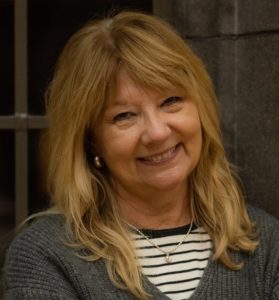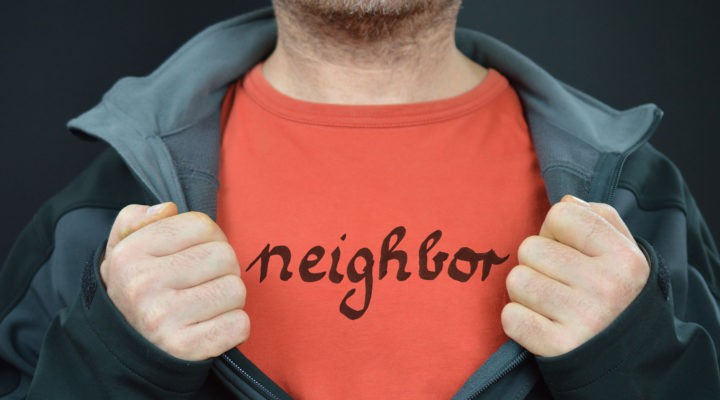As an educator, I am captivated by the conversation between Jesus and a lawyer described in Luke 10:25-37. The expert in civil and religious law asked how he could inherit eternal life, which he could answer by quoting a command to love God with all that we have and love our neighbor as we love ourselves.
The lawyer was not initially seeking enlightenment. He had a plan. Sometimes the questions aren’t really about the questions. Something else is going on. Jesus was not distracted by the lawyer’s entrapping inquiries. Jesus transformed a legal dialogue into a love story of characters that never would make the casting cut in a Hollywood film.

Paula Mangum Sheridan
This love story challenged devout living laws and revealed a truth that offered the lawyer a new life unattainable by legal expertise. The loving one, the one who reflects God’s love, is the one who notices a vulnerable stranger, has compassion and responds in a healing way. This loving one, a Samaritan, is despised by Jewish culture and law. He doesn’t fare well in proper social circles. The man in the ditch is no better off. Jesus describes him only by his wounds. We don’t know his social ranking, his ethnicity, or other defining qualities that we use as social markers. He was a naked, injured man, abandoned to the elements and others who could finish him off.
We know nothing about the vulnerabilities of the first two travelers. We know only their esteemed credentials. The undesirable traveler, one who was considered unworthy and unclean, cared for the injured one. Although his involvement cost him time and money, he did not request restitution or recognition. The Samaritan was the face of God’s love.
Most of the discussions I’ve heard about the first two travelers are pretty hard on them. They are judged for not stopping, knowing the law but not living out the law, and for their fear of being defiled by providing care. In their defense, getting involved would be costly. They would have to be purified before they could return to their homes and places of worship. They had no personal protection equipment, and the stranger’s wounds would contaminate them. By moving away from him, they observed the purity laws. Yet, they missed out on the gifts we receive when we love God with all our heart, soul, mind and might. And when we love our neighbor as we love ourselves. They missed the opportunity to love.
What are the reasons we disengage from someone’s suffering? Maybe our motives are anchored in socially acceptable reasons as well. Maybe we don’t have what someone else needs. Maybe their pain puts us in touch with a personal sorrow we aren’t ready to face. The places in our minds and on the streets that we now avoid can be the beginning of our own expanded love story.
“The places in our minds and on the streets that we now avoid can be the beginning of our own expanded love story.”
It costs us to respond to people in distress. Maybe we aren’t administering first aid or paying for lodging as the Samaritan in Jesus’ story, but there are other expensive ways of loving God by loving God’s children. Maybe we listen to someone who disagrees with us, and we discover their fear and pain. Perhaps we love someone our loved ones aren’t yet able to accept. We challenge laws that favor the affluent and neglect people who are poor. We insist that the most vulnerable are vaccinated as soon as possible. You can add to the list from your own life experiences.
Can we afford to love in this way? Can we afford not to love in this way?
Jesus describes a love that dismantles propriety, status and all the things we work hard to gain in our lives. He teaches us that loving as God loves is readily available for us all. He told the lawyer to “do this, and you will live.”
We will likely encounter someone in the ditch. The settings may differ, but we will probably come across one who needs a love story to survive. We may even be the person in the ditch, too weak to call for help. That love story is for us, too. Even in our vulnerable states, we, as God’s children, offer opportunities to receive and reciprocate the chords of love.
I don’t read much about the gifts the Samaritan received from his radical love. What did he get out of the deal? I think Jesus gave us a clue. We love as God intended. We live larger than our traditions and rules. We may also see that the guy in the ditch is one part of a larger redemption story.
Martin Luther King Jr. teaches us: “On the one hand we are called to play the good Samaritan on life’s roadside, but that will be only an initial act. One day we must come to see that the whole Jericho road must be transformed so that men and women will not be constantly beaten and robbed as they make their journey on life’s highway. True compassion is more than flinging a coin to a beggar; it is not haphazard and superficial. It comes to see that an edifice which produces beggars needs restructuring.”
“Last night as I was wrangling words to complete this work, a frightened woman banged on my front door.”
Last night as I was wrangling words to complete this work, a frightened woman banged on my front door. Moments earlier, I heard multiple cars crashing, which often occurs on my own busy, dangerous Jericho road. It was tempting to ride this one out. Several neighbors already were on the scene. But she, one of the drivers in the accident, asked me for help. My front porch became her home base for medical care, police interviews and family support. My offerings were meager — a coat, a glass of water, a comfortable place to be examined and interviewed, and a phone call for help. I waited with her as the evening unfolded.
I knew little about her social status. I only responded to her vulnerability. I almost missed out on her sacred ground. She reminded me that these acts of care live longer than we do. Our compassion engulfs the moment of need. Our eternal life may begin here on earth.
Paula Mangum Sheridan recently retired from Whittier College as an associate professor and program director of the social work department. She is a licensed clinical social worker and supports voter accessibility and the rights of people without homes in her community.
Related articles:
Want to understand Critical Race Theory? Read the Good Samaritan story
Will you join our church in declaring that this is a time to break silence?


